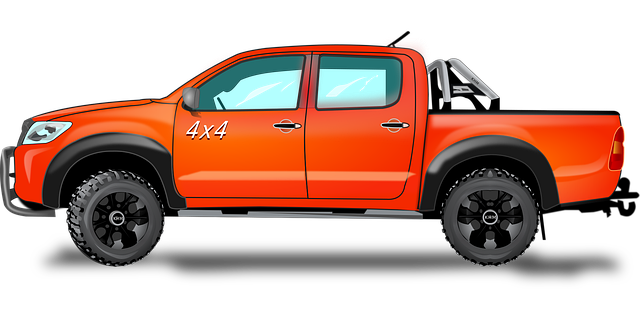ABS sensors, critical components in modern vehicles' anti-lock braking systems, prevent wheel locking during hard braking. Brownsville off-road performance parts suppliers stock these sensors, enhancing safety and control on challenging terrain. They monitor wheel speeds and activate brakes individually to maintain traction and steering, reducing skidding risks. Regular maintenance, including checks every 6 months or 10,000 miles, ensures optimal performance in Brownsville's demanding landscape. Choosing high-quality sensors from reputable manufacturers is key for off-road enthusiasts looking to maximize their vehicle's potential while prioritizing safety.
ABS sensors are integral to modern braking systems, preventing wheel lockup during hard stops. These sensors detect speed and rotation, sending vital data to the vehicle’s control unit, which modulates brake pressure for optimal braking performance. For off-road vehicles in Brownsville, ABS sensors offer enhanced safety and control on challenging terrain, ensuring drivers maintain precision steering and consistent stopping power. Choosing the right ABS sensors requires considering compatibility, quality, and reliability, while regular maintenance and troubleshooting ensure peak performance.
- What are ABS Sensors? (Explain ABS – Anti-lock Braking System and the role of sensors in it)
- How Do ABS Sensors Work? (Describe the function, technology, and components involved in ABS sensor operation)
- Benefits of ABS Sensors in Off-Road Vehicles (Highlight improved safety, control, and performance advantages for off-road conditions in Brownsville)
- Choosing the Right ABS Sensors for Your Off-Road Machine (Offer tips on selection criteria: compatibility, quality, reliability, and specific features catering to off-road needs)
- Maintenance and Troubleshooting Tips for ABS Sensors (Provide guidelines for regular upkeep, common issues, and DIY checks to ensure optimal performance in Brownsville's challenging terrain)
What are ABS Sensors? (Explain ABS – Anti-lock Braking System and the role of sensors in it)

ABS sensors play a pivotal role in modern vehicles’ Anti-lock Braking Systems (ABS). These sensors are crucial components that help prevent wheels from locking up during hard braking, allowing drivers to maintain control and steer effectively. ABS uses sensor data to detect wheel speed variations, which indicate the risk of wheel lockup. When a potential locking situation is identified, the ABS actuates brakes individually to prevent skidding.
Brownsville off road performance parts suppliers often stock these sensors due to their significance in enhancing vehicle safety, especially under extreme conditions. By continuously monitoring wheel speeds, ABS sensors contribute to improved braking performance and stability, ensuring drivers can confidently navigate challenging terrain or emergency stops.
How Do ABS Sensors Work? (Describe the function, technology, and components involved in ABS sensor operation)

ABS (Anti-lock Braking System) sensors are a critical component in modern vehicles, especially for off-road performance parts like those available in Brownsville. These sensors play a vital role in enhancing braking safety and control. Each ABS sensor is designed to monitor wheel speed, providing real-time data to the vehicle’s computer system. This technology enables the system to detect when a wheel locks up during hard braking, preventing skidding or loss of steering control.
The sensor typically consists of a magnetic field generator, often a small permanent magnet, and a sensor element. The magnet is usually attached to the brake rotor or caliper, while the sensor element is placed nearby. As the wheel rotates, the magnetic field varies, inducing a current in the sensor element. This variation in voltage is then converted into digital signals that the vehicle’s control unit can interpret. If a sensor detects a significant drop in wheel speed relative to the others, it signals the ABS system to pump the brakes selectively on the affected wheels to prevent locking, allowing for maintained traction and steering capability during emergency stops.
Benefits of ABS Sensors in Off-Road Vehicles (Highlight improved safety, control, and performance advantages for off-road conditions in Brownsville)

ABS sensors play a pivotal role in enhancing safety, control, and performance for off-road vehicles in Brownsville. One of the primary advantages is improved braking capability on uneven terrain, where traditional braking systems might struggle. By providing real-time data about wheel speed and slip, ABS sensors enable drivers to maintain better control over their vehicles during challenging off-road conditions, ensuring a more stable and secure driving experience.
Additionally, these sensors contribute to enhanced traction and maneuverability. In Brownsville’s diverse off-road landscape, ABS technology helps drivers navigate through mud, sand, or rocky trails with greater precision and agility. This is particularly beneficial for performance enthusiasts who push their vehicles to the limits, as it allows them to extract maximum performance from their Brownsville off-road performance parts while minimizing the risk of accidents.
Choosing the Right ABS Sensors for Your Off-Road Machine (Offer tips on selection criteria: compatibility, quality, reliability, and specific features catering to off-road needs)

When selecting ABS sensors for your off-road machine in Brownsville, consider these key factors:
Compatibility: Ensure the sensors are compatible with your vehicle’s make and model. Off-road vehicles often require specialized parts due to their unique driving conditions and demands. Check the sensor’s compatibility with your anti-lock braking system (ABS) module to guarantee seamless integration and optimal performance.
Quality and Reliability: Opt for high-quality ABS sensors from reputable manufacturers known for their durability and reliability in demanding off-road environments. Look for robust construction, superior materials, and a track record of withstanding rugged terrain and extreme conditions. This ensures your vehicle’s safety and reduces the risk of failures during challenging drives.
Maintenance and Troubleshooting Tips for ABS Sensors (Provide guidelines for regular upkeep, common issues, and DIY checks to ensure optimal performance in Brownsville's challenging terrain)

To ensure optimal performance of your ABS sensors in Brownsville’s challenging terrain, regular maintenance and timely troubleshooting are crucial. Check your anti-lock braking system (ABS) sensors at least every 6 months or 10,000 miles, depending on your usage. Inspect the sensors for any signs of damage, corrosion, or loose connections. Keep an eye out for unusual noises or vibrations during braking, which might indicate sensor malfunction.
DIY checks include verifying proper voltage and signal strength at each sensor using a multimeter. Look for discrepancies between sensor readings and actual wheel speed. Regular cleaning of the sensors and their mounting areas with compressed air can prevent buildup of dirt, grease, or debris. Remember, Brownsville’s off-road performance parts market is vibrant; staying proactive on sensor maintenance can help avoid costly repairs and keep you safe while navigating the city’s challenging roads.
ABS sensors play a pivotal role in enhancing off-road performance parts in Brownsville. By ensuring stable braking during challenging terrain, these sensors contribute to improved safety and control. When choosing ABS sensors, prioritize compatibility, quality, and reliability. Regular maintenance, including DIY checks, can prevent common issues and keep your off-road machine running smoothly. Incorporating the right ABS sensors into your vehicle will unlock optimal performance in Brownsville’s diverse landscape.



